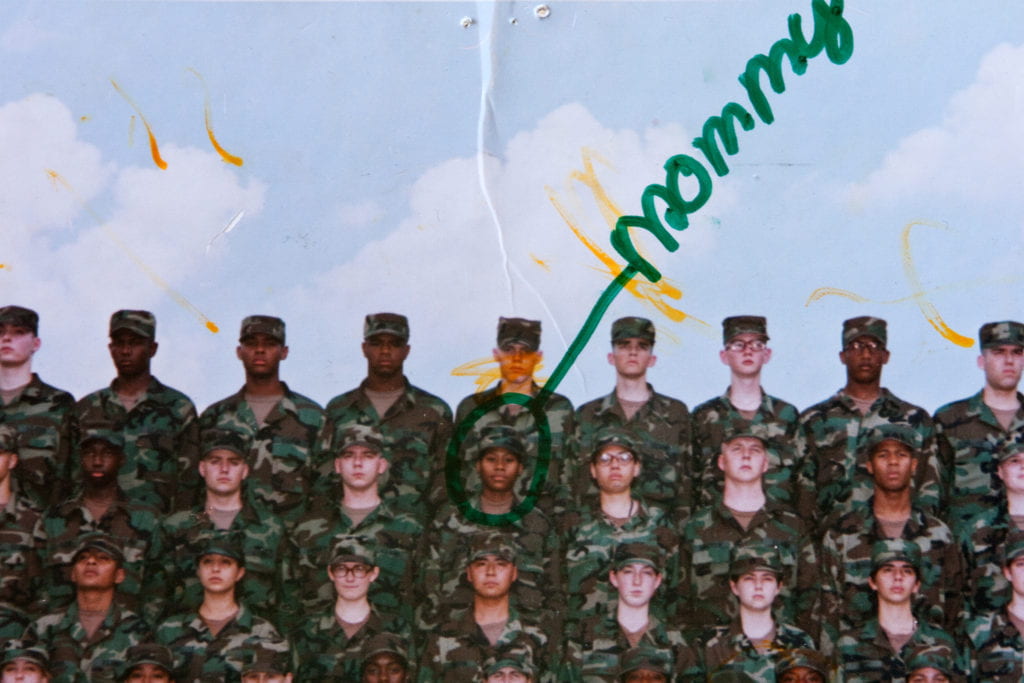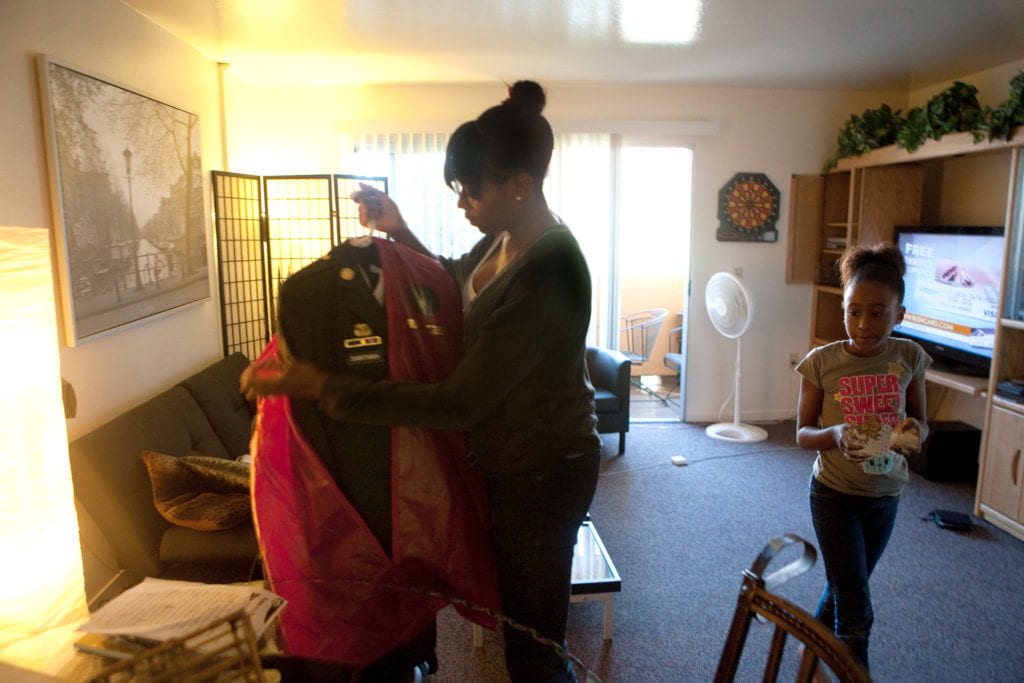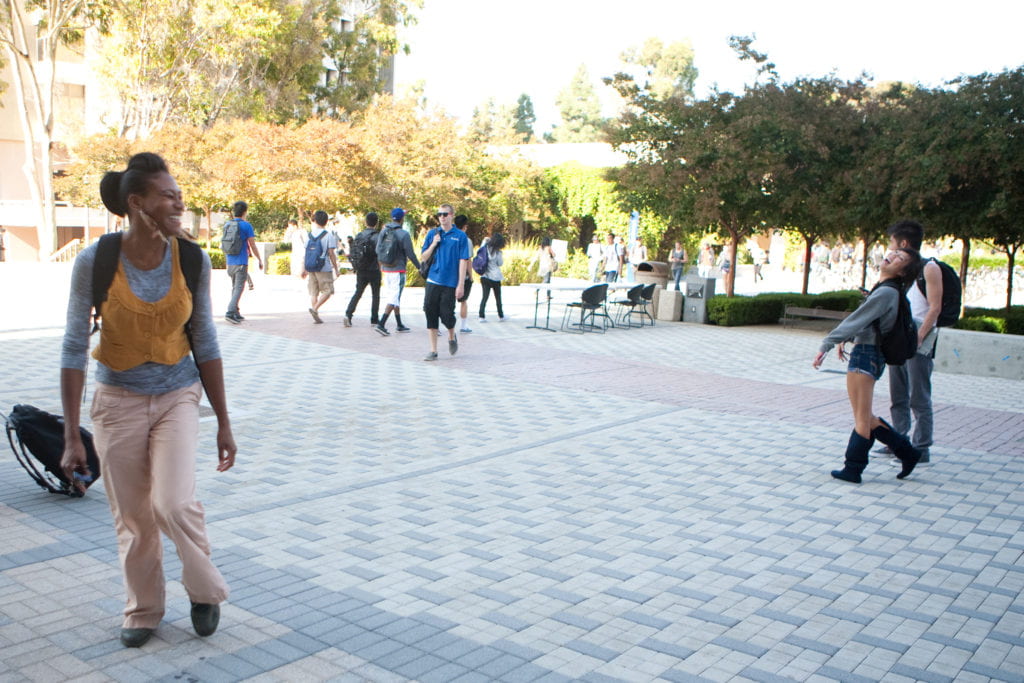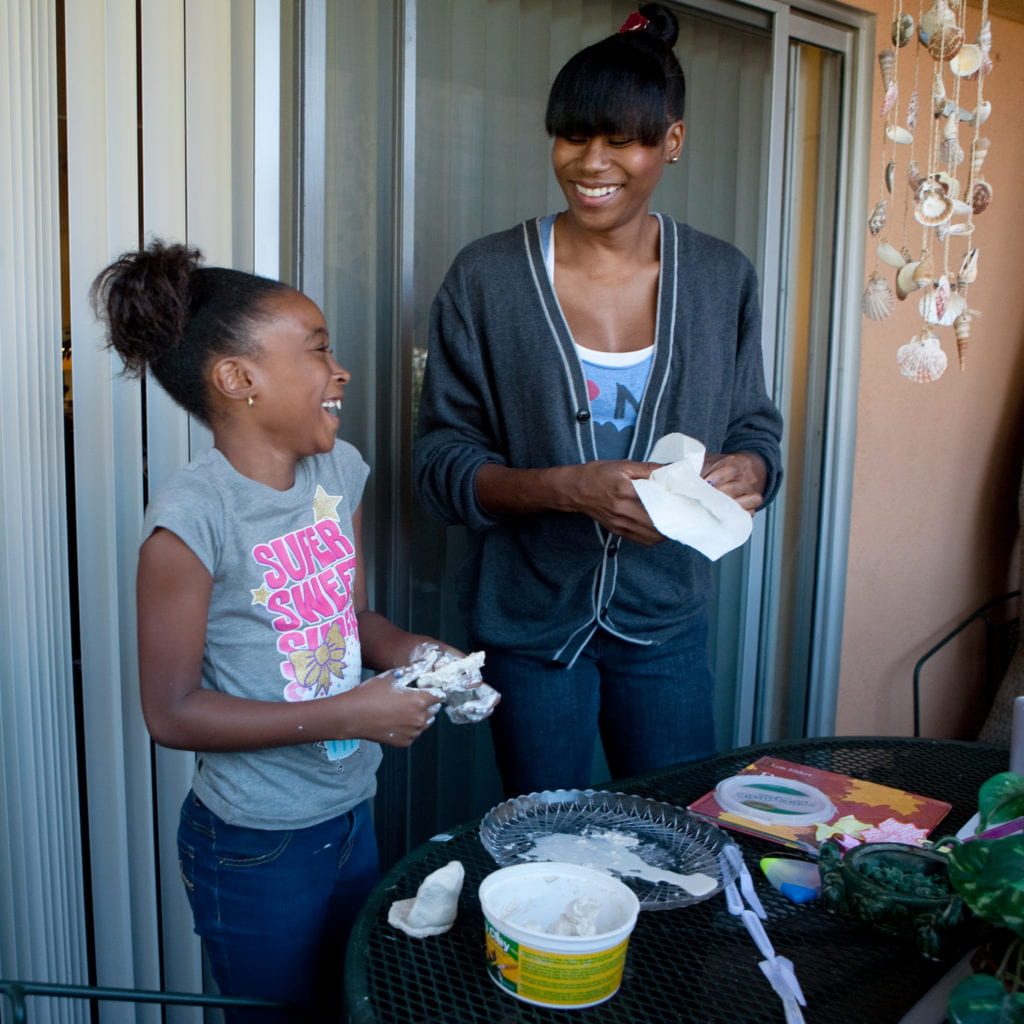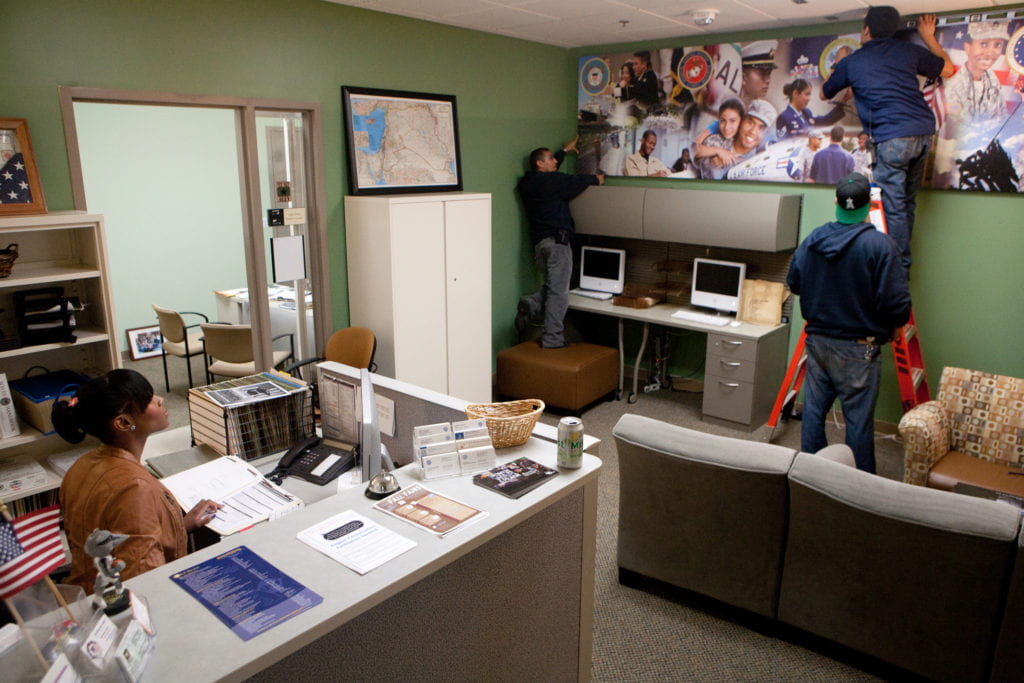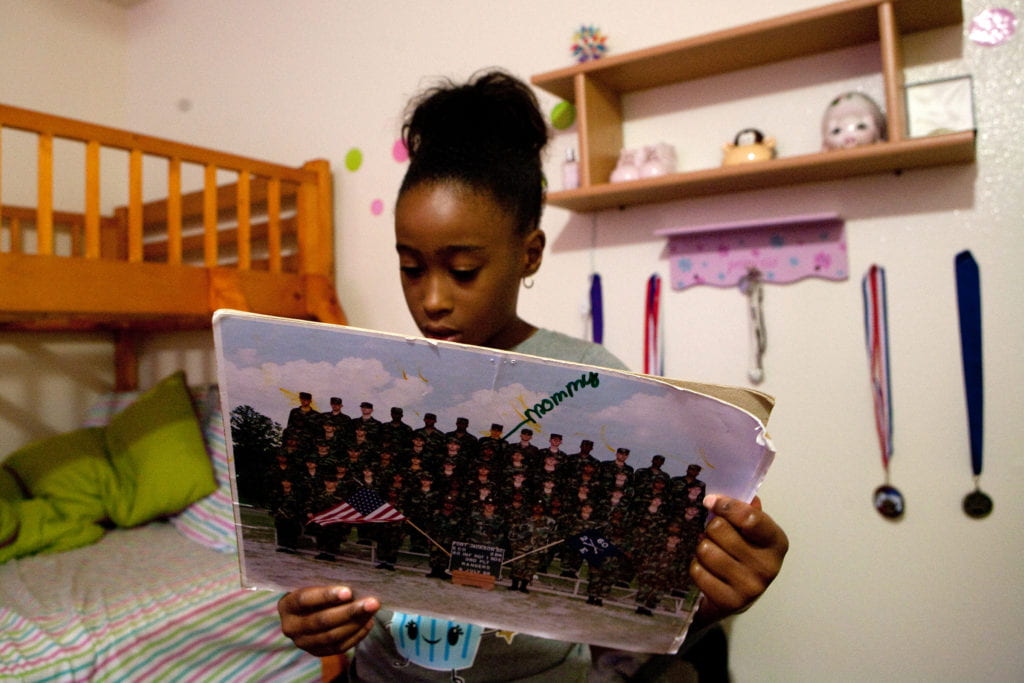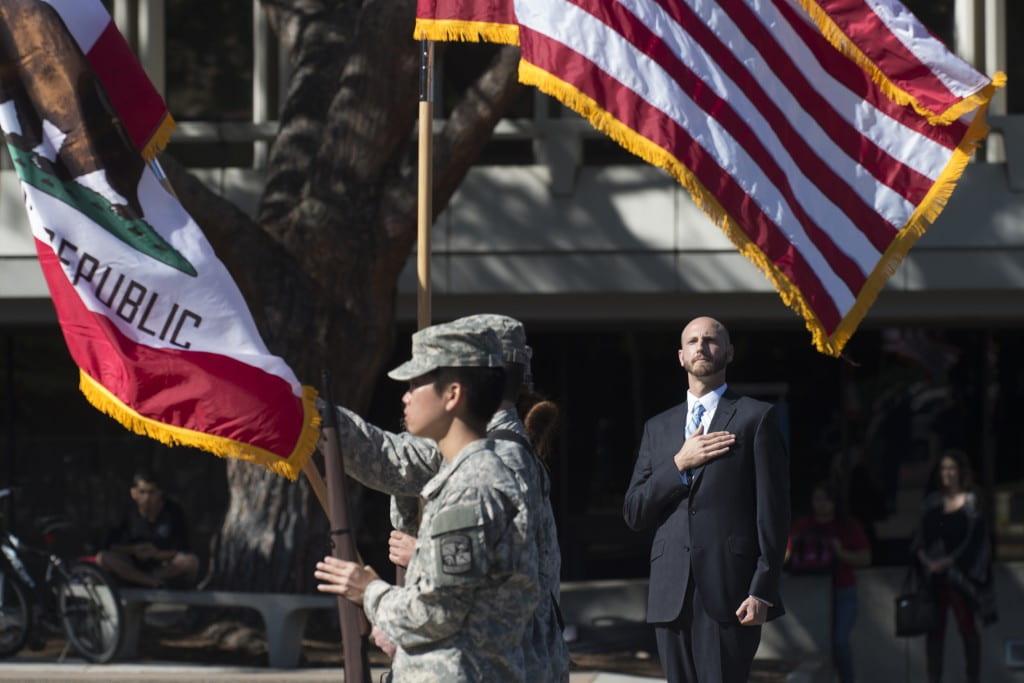Serving those who serve
Groundbreaking priority housing program is among the accommodations provided to former military personnel by Veterans Services office.
UC Irvine has adopted a groundbreaking housing policy designed to ease U.S. veterans’ transition from military to academic life. It’s just one form of support provided by UCI Veteran Services, which opened new offices last month in the Student Center. The goal: to make every day Veterans Day.
“Basically, we’re here to make sure veterans get the benefits to which they’re entitled and help them with any academic, personal or housing needs,” says Adeli Duron, Veteran Services coordinator. “We also conduct outreach and as a result have more than 120 veterans enrolled this year.”
The new policy was a joint undertaking of Veteran Services and Kerri Sherwood, associate director of residential life at Palo Verde student housing. Among its features are preferred housing registration, flexible lease arrangements to accommodate redeployment, and graduate housing options for undergrads burned out on dorm-style living and roommates.
Tanishia Santana, a U.S. Army veteran, took advantage of the policy this fall when she and her 9-year-old daughter, Nyla, moved into the Palo Verde grad student and family apartment community.
“It helped me out tremendously by alleviating the stress of searching for a place to live and allowing me to focus on other details of the university application process,” says Santana, a sociology major.
“The guaranteed housing for veterans was also a factor in selecting campuses. It let me plan ahead when the lease was up on my previous housing, and I was able to budget appropriately and register my daughter for school on time, since I had an address far in advance.”
Santana was so impressed with the assistance she received that she now works part time in UCI’s Veteran Services office while taking a full load of classes and raising Nyla. Her busy schedule is typical of veterans, who are older than most undergraduates and frequently have families. Their unique histories call for a broad range of centralized services, Duron notes.
“Often they need help initially with the registration process,” she says. “And in the Office of the Dean of Students, we pride ourselves on the number of leadership opportunities we provide, both on and off the campus, through clubs and organizations or volunteer work.”
These experiences, she says, help veterans accustomed to following orders develop confidence in their own ability to take charge.
Veteran Services also collaborates with other campus departments to offer disability and mental health care, counseling, tutoring, and career and financial guidance. In addition, the Vet Net Ally Program trains UCI faculty and staff on the specific needs of former military personnel.
Participants learn what life is like for veterans, their lingo, what they may have gone through, even their motivations for joining the armed forces, which “isn’t always what you might expect,” Duron says.
All services are aimed at making UCI a vet-friendly campus, and according to Santana, it’s working.
“I’m really happy with how things are going so far,” she says, “with my entire process of attending school.”
